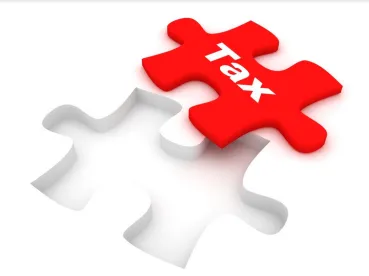On Thursday, June 21, 2018, The Supreme Court of the United States issued its decision in the landmark South Dakota v. Wayfair, Inc. case, drastically changing the law for e-commerce and remote sellers. In the 5-4 decision, the Supreme Court held that the existing law is “unsound and incorrect” and that even if an out-of-state seller has no employees, inventory or offices in a state, a state can subject that seller to its sales tax requirements. This will have a widespread impact on online businesses, as they will soon have increased burdens to correctly calculate, collect, and remit sales taxes on their sales.
South Dakota v. Wayfair, Inc.
The Wayfair, Inc. decision involved a South Dakota law that required out-of-state sellers that deliver more than $100,000 of goods and services into South Dakota or engage in 200 or more separate transactions in South Dakota to collect and remit sales tax even if the out-of-state seller has no employees, buildings or other property in the state. Long standing case law (Quill Corp. and its progeny) provided that under the Commerce Clause of the Constitution of United States, a state may not require a business to collect its sales tax if the business lacks a physical presence in the state. In Wayfair, Inc., the Supreme Court stated the existing law is “removed from economic reality”. The Court cited to studies that Quill has caused states to lose between $8 and $33 billion every year.
The Court stated that the existing law, as applied today, is an incorrect interpretation of the Commerce Clause. Quill “serves as a judicially created tax shelter for businesses that decide to limit their physical presence and still sell their goods and services to a State’s consumers – something that has become easier and more prevalent as technology has advanced.” The Court also stated when the Quill was decided, mail order sales totaled $180 billion. In 2017, e-commerce and other remote sales exceeded half a trillion dollars. Additionally, the Court pointed out that Quill benefited out-of-state sellers and prevented in-state sellers from “competing on an even playing field.” Ultimately, the Court concluded the physical presence rule of Quill is “unsound and incorrect” and overturned the law that has been in place for the last 25 years.
The result of Wayfair, Inc. is that we expect many more states to either enact laws or enforce existing laws that require out-of-state sellers to collect and remit state sales tax in states in which they do not have a physical presence. As the dissent in Wayfair pointed out, “[o]ver 10,000 jurisdictions levy sales taxes, each with different tax rates, different rules governing tax-exempt goods and services, different product category definitions, and different standards for determining whether an out-of-state company has a substantial presence in the jurisdiction. A few examples: New Jersey knitters pay sales tax on yarn purchased for art projects, but not on yarn earmarked for sweaters. Texas taxes sales of plain deodorant at 6.25 percent but imposes no tax on deodorant with antiperspirant. Illinois categorizes Twix and Snickers bars . . . as food and candy, respectively (Twix have flour; Snickers don’t), and taxes them differently.”
Accordingly, retailers with an online presence can expect increased burdens to correctly calculate, collect and remit sales taxes on their sales. It is possible Congress will act now that Wayfair, Inc. has been decided in favor of the states. There have been previous legislative proposals to simplify the sales tax calculations on remote sales, but so far nothing has passed.





 />i
/>i

